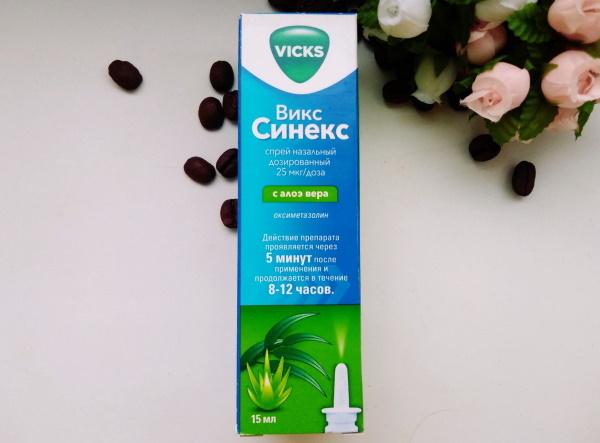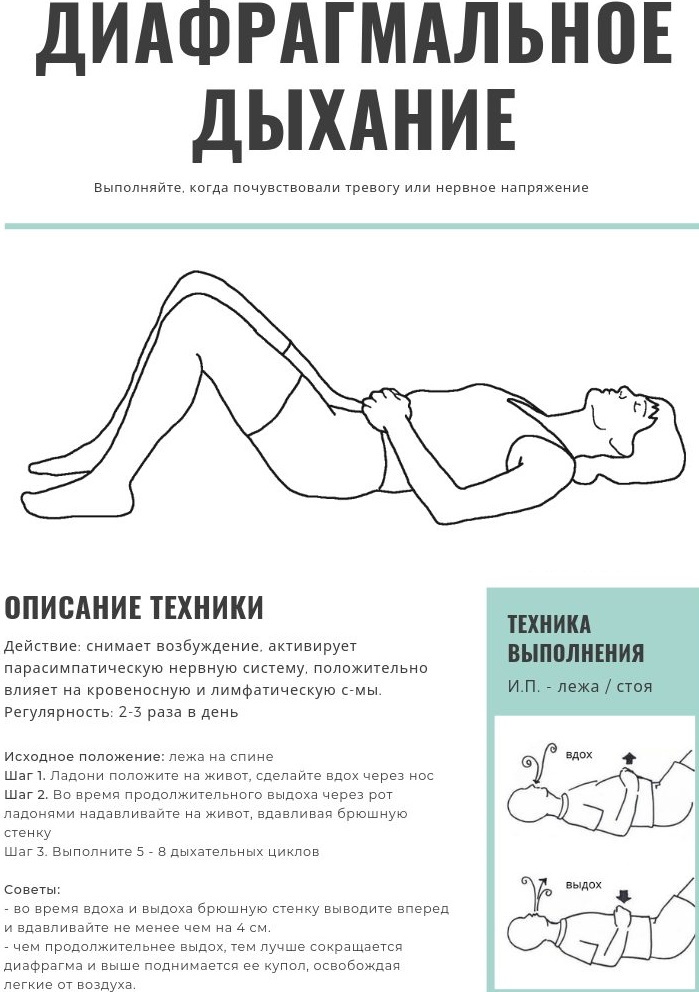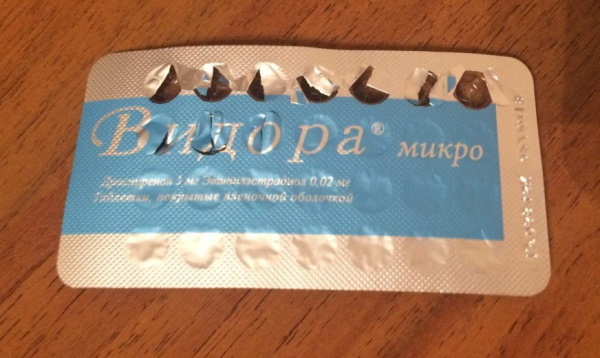Content
- Release form
- Chemical composition
- Safety of the product for an infant
- Pharmacological properties
- Pharmacodynamics and pharmacokinetics
- Indications for use in breastfeeding
- Contraindications
- Instructions for use, dosage for breastfeeding
- Side effects
- Overdose
- special instructions
- Drug interactions
- Analogs
- Terms, conditions of sale and storage
- Price
- Video about the drug Glycine
Glycine is a Russian drug which improves the resistance of the nervous system to stress, helps with insomnia and normalizes the activity of brain cells. The drug is recognized as safe, therefore it is allowed to use it during breastfeeding.
Release form
Glycine is produced in a single medicinal form - white sublingual tablets. The tablets have a flat-cylindrical round shape with a chamfer and risks. The drug is odorless and has a sweet taste.
Tablets are placed in a honeycomb blister in the amount of 50 pcs. The package contains 1 or 2 blisters, instructions for use.
Chemical composition
The ingredients of glycine sublingual tablets are:
| List of components | Characteristics of elements |
| Basic substance | |
| Microencapsulated glycine | It activates metabolic processes in the brain and is an inhibitory neurotransmitter. It also has antioxidant and antitoxic effects. |
| Additional components | |
| Methylcellulose | It is a thickener and stabilizer, gives the tablets the desired texture. |
| Magnesium stearate | Facilitates the dissolution of the tablet in the mouth by the action of saliva. |
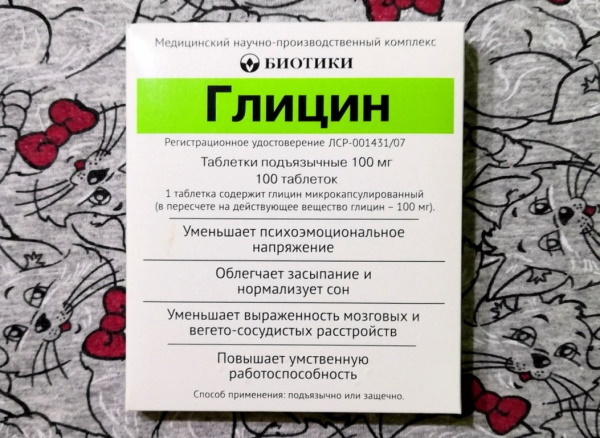
Auxiliary components are needed to give the product the desired shape.
Safety of the product for an infant
Glycine for breastfeeding is approved for use, but conditionally. The caution in taking the drug is due to the lack of tests (they are not carried out) about the harm to the child's body. At the same time, it is known that a small part of Glycine penetrates into breast milk, providing a calming effect on the baby.
In this regard, if the neuromuscular tone of the baby is reduced, then the drug can be taken only with the permission of the doctor, otherwise the use of the drug can cause the progression of the pathology. It should also be remembered that in healthy children, Glycine, through breast milk, can cause the development of allergies.
Pharmacological properties
Glycine is on the list of drugs that help to improve metabolism in brain tissues.
Pharmacodynamics and pharmacokinetics
Glycine during breastfeeding has the following effects on the systems and tissues of the body:
- regulates metabolic processes (metabolic) in the brain;
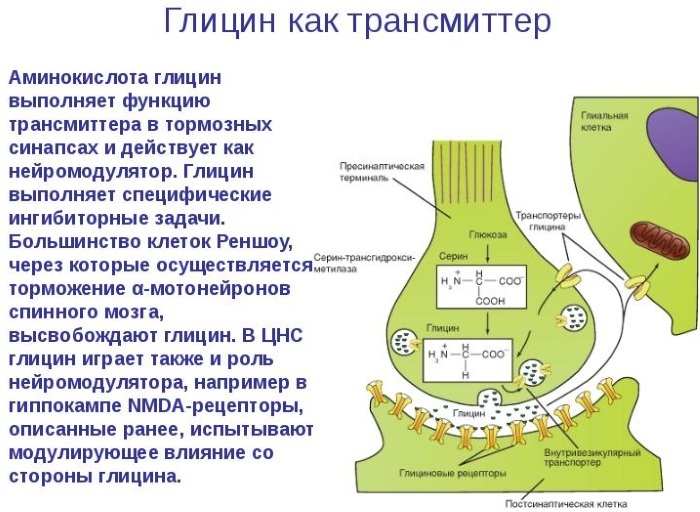
- reduces the aggressive effects of antioxidants;
- restores the functioning of the cells of the nervous system;
- stimulates the protective functions of the central nervous system, reducing aggressiveness;
- reduces psycho-emotional stress;
- improves brain functioning by enhancing activity and memory;
- promotes social adaptation;
- has a general sedative effect;
- makes the process of falling asleep easier and deeper sleep;
- reduces the toxic effect of medicines and alcohol in case of poisoning;
- accelerates the recovery of brain tissue after damage to brain tissue (trauma, stroke).
Additionally, the use of glycine helps to improve mood. The main component of the tablets penetrates into the biological fluids of the body, in which it breaks down into water and carbon dioxide. The main element does not accumulate in the tissues. As a result of the drug's activity, a lactating woman's psycho-emotional balance is normalized, a violation of which affects the quantity and quality of milk.
Indications for use in breastfeeding
The doctor may prescribe glycine when breastfeeding a baby in the following situations:
- decreased concentration or memory due to regular fatigue;
- postpartum stress or stress from an unaccustomed burden of caring for a baby;
- sleep disturbance due to night feeding;
- deterioration of metabolic processes in the tissues of the brain. Pathology can be a complication of the disease;
- depressed mood or irritability;
- quick fatigue, even with light loads;
- frequent mood swings;
- headache. But provided that the pain is not severe and not regular;
- in the complex treatment of hypertension (persistent high blood pressure);
- acceleration of the elimination of toxins in case of accidental drug poisoning.
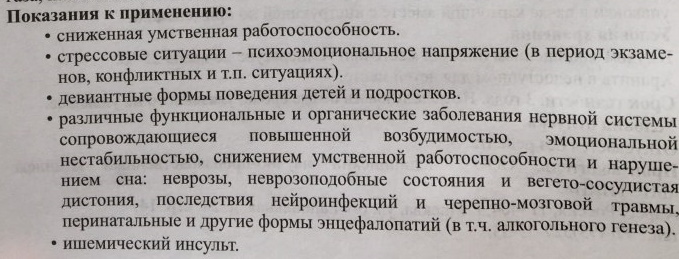
Also, the remedy can be prescribed for concussion or brain injury.
Important. Despite its safety, the drug should not be used without consulting a specialist. The doctor will check for contraindications, and will also select the appropriate individual dosage.
Contraindications
Glycine for all patients has the only contraindication - hypersensitivity to the elements of the tablet, which, if ignored, can cause the development of a strong allergic reaction. Pathology is especially dangerous, since an allergy can also manifest itself in a child, when taking the drug while breastfeeding.
Important. With severely reduced pressure, the drug must be taken with extreme caution. And for the period of the course, the pressure indicator should be checked at least 2 times a day. Also, for the first 3 days, it is required to monitor the reaction of the child's body. If the baby has a violation of the stool, worsening sleep or appetite, then Glycine must be canceled.
Instructions for use, dosage for breastfeeding
The dosage of Glycine for women during lactation should be adjusted by the attending physician. It is strictly forbidden to select a course of treatment on your own. Since with the wrong dose, the child will receive more harm than the mother.
In the absence of prohibitions and restrictions, Glycine should be used in accordance with the following instructions:
| Purpose of admission | Dosing features | Well |
| Decreased attention, memory, irritability, and fatigue | Use tablets of 1 pc. in the morning and evening. | 1-2 weeks. The duration of treatment depends on the dynamics of the treatment. |
| Postpartum stress | Prescribe tablets of 2 pcs. 3 times within 24 hours. | 7-10 days. Due to the high dosage, you should carefully monitor the well-being of the child. |
| Insomnia | Use tablets 1-2 pcs. approximately 30 minutes before bedtime. | Do not use Glycine for more than 2 weeks. |
| Disruption of metabolic processes in the brain and with concussion | Depending on the severity of the pathology, take 1-2 tablets 2-3 times a day. | The duration of therapy, as well as comprehensively used drugs, are prescribed by a doctor. |
| Headache | Use tablets of 1-2 pcs. when pain appears. | The course is set individually. But no more than 14 days of taking the drug daily. |
| With hypertension | Use tablets of 1-2 pcs. 1-3 times within 24 hours. | The duration of therapy is no more than 2 weeks. |
| When removing toxins | Take 2 tablets. after gastric lavage. Further, 1 tablet 2-3 times a day. | The course (when taking 1 tablet) is 5-7 days. If necessary, the treatment can be extended up to 2 weeks. |
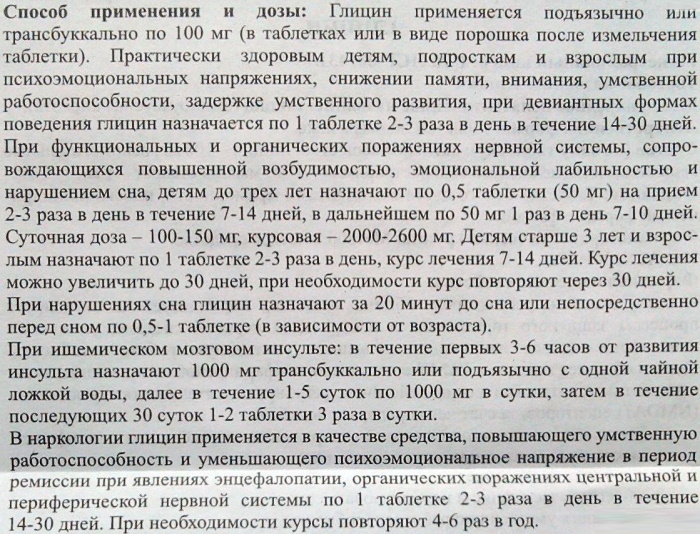
In severe pathologies, the use of Glycine is allowed up to 1 month. Next, you need a break of 30 days. Then a repetition of the course is allowed.
When using the drug, doctors recommend following the recommendations at the same time:
- pills can be taken regardless of food;
- the drug must completely dissolve under the tongue, if swallowed, the effectiveness of the drug will decrease;
- try to organize time for sleep and rest;
- include more healthy foods on the menu, including permitted vegetables and fruits.
In addition, the help of relatives in caring for the child is needed.
Side effects
Glycine during breastfeeding, in cases where the patient has not excluded an allergic reaction, can cause:
- the appearance of an itchy rash;
- redness of the skin;
- flushed face;
- shortness of breath;
- cough;
- laryngeal edema.
Also, the development of severe allergies in the form of anaphylactic shock is not excluded. In this case, the listed symptoms may appear not only in the mother, but also in the child, if the baby is allergic to the drug.

Additionally, the child may have the following symptoms:
- inhibition of reactions;
- abdominal pain, the baby will behave like colic;
- changes in stool characteristics;
- decreased appetite;
- worsening sleep.
If the above symptoms are found in a baby, the use of the product should be discarded.
Overdose
The development of glycine poisoning can develop with the use of more than 15 tablets at a time.
In this case, the victim may show the following symptoms:
- loose stools, may be replaced by constipation;
- constant desire to sleep;
- severe nausea, turning into vomiting, and vomiting may also appear immediately;
- dizziness;
- violation of coordination of movement;
- feeling of dryness in the mouth;
- a sharp decrease in pressure;
- increased heart rate;
- pronounced depression of consciousness;
- development of spasm in the lungs;
- severe weakness;
- loss of consciousness.
Also, in the presence of allergies, the development of anaphylactic shock was noted in patients.
With the development of Glycine poisoning, the victim should be given the following first aid:
- lay on the side and rinse the stomach. To do this, the victim should drink approximately 1.5 liters of water and, by irritating the root of the tongue, induce vomiting;
- in the case when more than 40 minutes have passed after taking the drug, it is necessary to give the victim sorbents. They will attract the components of the product and accelerate their removal from the body.
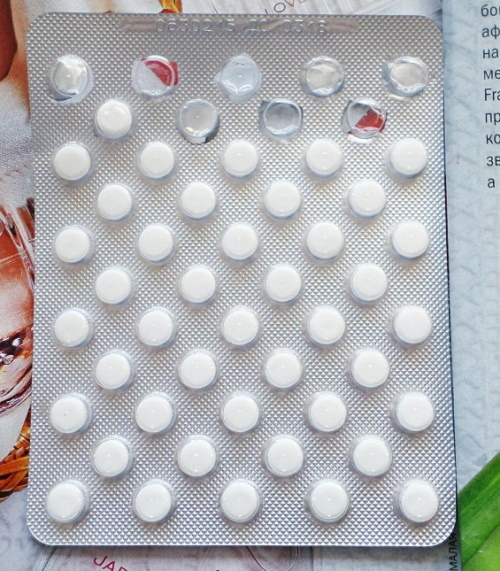
If a severe form of allergy or loss of consciousness is detected, an emergency call is required.
special instructions
When using the product during lactation, experts recommend observing the following special instructions:
- do not take pills without consulting a doctor. The specialist will select a sparing treatment regimen (single and daily dosage, as well as the duration of admission);
- it is forbidden, in the absence of the desired effect, to independently increase the dose or prolong the course;
- in the absence of improvement after 3-4 days, you should stop taking Glycine and consult a doctor to adjust the treatment;
- for the entire period of treatment (especially in the first 3 days), you need to monitor the behavior and condition of the baby;
- with reduced pressure, the dosage, as well as the course, are selected individually. Additionally, the patient is obliged to regularly monitor the pressure value.
In cases of development of a negative reaction, both in the mother and in the child, the drug is canceled.
Drug interactions
Glycine during breastfeeding can be prescribed in complex treatment. In this case, the type of drugs used is selected strictly by the doctor. This nuance is due to the fact that the remedy is not combined with all medicines.
Glycine should not be used at the same time:
- with analogs, since the sedative effect increases, and the likelihood of overdose symptoms from both medicines increases;
- enhances the inhibition of the central nervous system when used in conjunction with tranquilizers.
At the same time, the use of Glycine simultaneously with antidepressants, anticonvulsants and hypnotics, reduces the severity of side effects from them.
Analogs
In case of intolerance to the components, Glycine can be replaced with analogues, which may be more effective, but their cost will be higher.
A short list of the most popular substitutes:
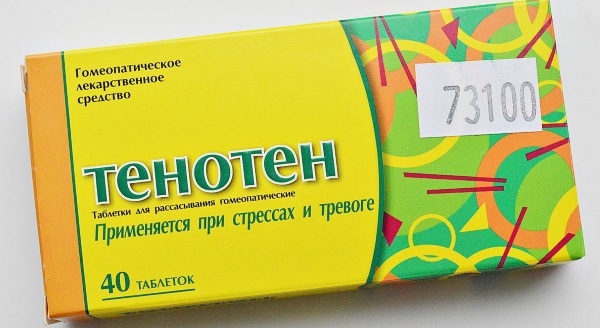
| Analogue name and average price | The main element and its action | Instructions for use |
| Tenoten. The cost for 40 tablets for resorption is about 320 rubles. | Antibodies to brain-specific protein are the active ingredient of the drug, which reduces anxiety, increases susceptibility to psycho-emotional overload, improves mood, and also improves oxygen supply in tissues brain. | Indications for taking the drug are similar to the original, a contraindication to the use of the drug is also intolerance to the components. An analogue during lactation is allowed to be used under the supervision of a physician. Tenoten should be taken 1-2 tablets for 1-2 months. A more accurate course is established by a specialist. Side effects, like Glycine, are manifested in the form of allergies. |
| Biotredin. The price for 30 sublingual tablets is about 130 rubles. | The main components (threonine and pyridoxine hydrochloride) normalize metabolic processes in the brain, activate its efficiency, accelerate the elimination of toxins, and also normalize mood. Additionally, the remedy eliminates stress, improves sleep and prevents the development of depression. | Indications and contraindications for the use of the drug are identical to the original. When breastfeeding a baby, use an analogue after consulting a specialist (there are no prohibitions). Take 1-4 tablets for 10-30 days. Taking the drug may cause dizziness and increased sweating. |
| Eltatsin. Cost for 50 pcs. sublingual tablets is about 200 rubles. | The main component of the analogue is glycine. Despite this, the effect of the drug is different. The active ingredient not only helps to normalize brain activity and eliminate anxiety, but also prevents development of oxygen starvation of tissues, restores the activity of the heart muscle, and also increases physical endurance. | An analogue is prescribed not only to eliminate anxiety and normalize the brain, but also to restore heart activity, increase physical endurance. During lactation, the drug is taken under the supervision of a physician. Contraindications and negative reaction to the use of the product are identical to the original. You need to take 1 tablet a day for 14-90 days. But the exact dosage is selected strictly by the doctor. Self-medication with this drug is unacceptable. |
| Afobazol. The price for 60 tablets is approximately 420 rubles. | The main component (fabomotizol) has an inhibitory effect on the central nervous system, eliminating irritation, anxiety and overexertion. Also, the drug improves sleep, prevents the development of depression and improves attention and memory. | The indications, as well as the list of prohibitions, are similar to the original. In this case, the drug during lactation should be used with extreme caution. Dosage, frequency of admission and course are set individually. The use of the product, in addition to an allergic reaction, in rare cases can cause a headache. |
| Glycised. The cost for 50 absorbable tablets is approximately 1600 rubles. | The main element (glycine) improves metabolism in the tissues of the brain and spinal cord, as a result, nervous overstrain is eliminated, and thinking and memory, the process of falling asleep is facilitated, and the agent also promotes the rapid removal of toxins from the body and the activation of psychotropic reactions. | The indications for the use of the drug are similar to the original, but the drug is additionally used for physical overload, infectious pathologies of the brain. A contraindication is also the intolerance of the components. During lactation, the drug can be taken under the supervision of a doctor, and the specialist also selects the dosage and sets the duration of the intake. The use of an analogue, in addition to an allergic reaction, can cause disruption of the digestive tract, headaches and nausea. |
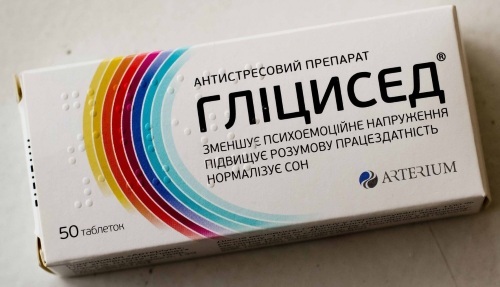 During lactation, the substitute is selected strictly by the doctor. Since it is required to choose the safest analogue not only for the mother, but also for the baby.
During lactation, the substitute is selected strictly by the doctor. Since it is required to choose the safest analogue not only for the mother, but also for the baby.
Terms, conditions of sale and storage
You can buy Glycine in a pharmacy without a prescription from a doctor. After purchase, the drug must be stored in a place away from sunlight and moisture, as well as at temperatures up to 25 ° C. Additionally, the tablets should be in packaging and away from children's reach. Subject to these instructions, the shelf life of the product is 3 years.
Price
You can buy Glycine both in a regular pharmacy and order it online. At the same time, the price of the product is lower when ordering online.
Indicative price range for Glycine:
| Number of tablets in a package | In a regular pharmacy | In the Internet | ||
| Minimum price | Maximum price | Minimum cost | Maximum cost | |
| 50 pcs. | RUB 50 | RUB 70 | RUB 39 | 43 rbl. |
| 100 pieces. | RUB 80 | RUB 100 | 74 rbl. | 79 RUB |
When choosing a tool on the Internet, it is important to first make sure that this is not a fraudulent site, and also pay for Glycine only upon receipt.
Glycine, among the drugs of identical action, stands out for its proven efficacy, as well as the absence of side effects (except for allergies). An additional, big advantage of the drug is the possibility of its use during breastfeeding.
Author: Kotlyachkova Svetlana
Video about the drug Glycine
The benefits and harms of Glycine:

